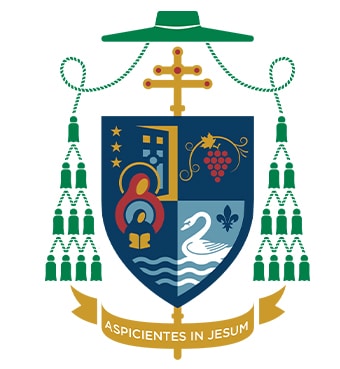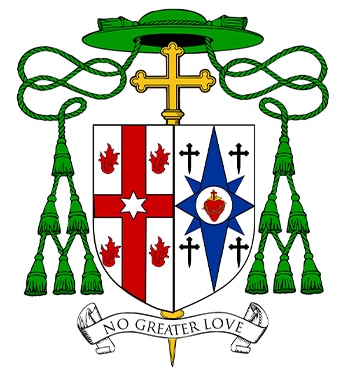Catholic in America: They’ll know we are Christians by our love
The Michigan Catholic
October 16, 2014
Al Kresta
A Protestant leader coordinating mission projects for Southeast Asia told me that “division and disunity among Christians” was undermining his proclamation of the Gospel. Two years before, Pope St. John Paul II declared the same in “That They May be One.” Protestant or Catholic, disunity sabotages evangelization.
The hostile reaction to Cardinal Dolan becoming grand marshal of the 2015 St. Patrick’s Day Parade is instructive. Was this prudent? Good Catholics disagree. How we disagree, however, is our spiritual test. Does the Gospel empower people to resolve conflicts better than the verbally violent, dishonoring, demeaning ways of the world? Not according to his over-the-top critics. In Christ’s name they soiled comment boxes and filled Facebook pages with detraction, rash judgment, false witness, calumny and disregard for the cardinal’s reputation. Consequently, the answer to Christ’s prayer “that they may all be one… [so] that the world may believe that you sent me” (Jn 17:21) was nowhere in evidence.
Their moral indignation blinded them to evangelization’s bedrock truth: How we live together as the family of God makes plausible or implausible our claim that the Father sent the Son to be the Savior of the world. When we fail to demonstrate the reconciling spirit that Jesus breathed upon his apostles (Jn 20:22), we suppress the evidence the world needs to affirm Christ’s claims (Jn 17:20-26). So “Adorn the doctrine” (Titus 2:1). Give it beauty. Flesh it out. The modern world listens to witnesses far more than teachers (Pope Paul VI). To what, then, do these critics bear witness?
Being the sacrament
Sacraments bear witness to invisible realities. For instance, Jesus is the sacrament of God. When Philip asked Jesus to show him the Father, Jesus replied: “He who has seen me, has seen the Father” (Jn 14:9). The invisible God revealed Himself in the visible Jesus. Similarly, the Church is the sacrament of Jesus. Our task is to image Jesus in this material world. Can we say “He who has seen the Church, the body of Christ, has seen Jesus”? Definitely.
Blind spots and biases in education and media prevent most Catholics from witnessing how Christ has gifted human culture. The scientific enterprise, patronage of the arts, pre-Nazi opposition to eugenics, just war theory, the elevation of women’s social status, the sanctity of human life, rule by consent of the governed to name a few. Further, Christ’s sacrificial love became the West’s highest ethical ideal. The result? No institution will feed, cloth, educate, shelter, or heal as many needy as the Catholic Church. While the Church is not the sole actor in these achievements, intellectual and cultural historians trace these contributions back to Catholic origins. Christ the Head tangibly shows himself through his Body, the Church.
Why not dismiss these critics as “spiritual pygmies?” Because in the age of the Internet, any stream of vitriolic complaint and criticism can dampen the zeal of “missionary disciples” whose hospitality, missions of mercy and warm invitation to non-Catholics must now contend with a contrary message from inside the Church. These critics send an incoherent, destructive message to inquirers: “Welcome to full communion with Christ’s Church, established and now governed through the bishops, successors to the apostles, ‘feckless, money-grubbing, cowardly, gullible’ though they may be.” When bad news smothers good, shall we call it “de-evangelization”?
Some retort: “You wuss, your stress on respect and unity sacrifices the truth to ‘just get along.’ Didn’t St. Paul confront St. Peter?” First of all, Peter or Paul, you are not. Second, a mere difference of opinion over a civic parade does not rise to either a defense or a betrayal of the Truth.
Careless words ‘de-evangelization’
“Knowledge puffs up, but love builds up” (1 Cor 8:1). In our information-rich age, a certain type of educated Catholic imagines that second-guessing Church leadership and publishing strong opinions on Church matters is equivalent to conforming our lives to Christ. It is not. Rather than quietly befriending real people who require hours of care and catechesis in preparation for union with Christ’s Church, the critics splash careless words around, that, unwittingly, “de-evangelize” as effectively as those of Christ’s enemies.
Notice this string of adjectives: “feckless, money-grubbing, cowardly, gullible” describing a “prince of the Church.” Compare another string of adjectives describing the prince of the virtues, love. Then personify love as Christ. “Love/Christ is not pompous, inflated, rude, quick-tempered. Love/Christ does not rejoice over wrongdoing” (1 Cor 13:4-6). One critic spoke gleefully, rejoicing that the cardinal would finally be revealed to the world as a “spineless, glad-hander.” Let’s paraphrase: love/Christ does not “take pleasure in the sins of others.” Love/Christ does not “delight in evil” or “cheer at another’s harm.” Rejoicing in the revelation of the cardinal’s supposed “wrongdoing,” betrays, or, at least, forfeits the supreme revelation of Christ which is the love of God.
“The anger of man works not the righteousness of God” (Jas 1:20). Once during my pastorate, righteous indignation overflowed into self-indulgent, “prophetic” outbursts. I was wrong, humiliated and forced to publicly acknowledge that what is ugly in my conversation is almost always self-defeating for my mission. Let’s build the Church in love. Joyfully transmit the Gospel in faith. And then, by God’s grace, we may even bless the nation with hope.
Al Kresta is president and CEO of Ave Maria Communications in Ann Arbor. His radio program, “Kresta in the Afternoon,” can be heard from 4-6 p.m. daily on 990 AM-WDEO and EWTN.
Source: http://themichigancatholic.com/2014/10/theyll-know-we-are-christians-by-our-love/








